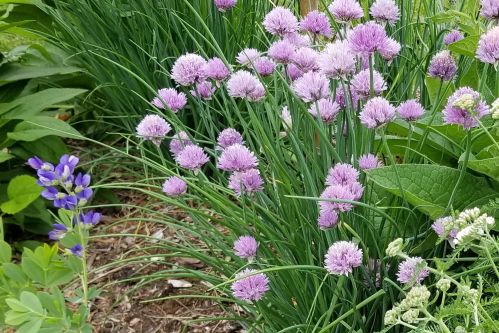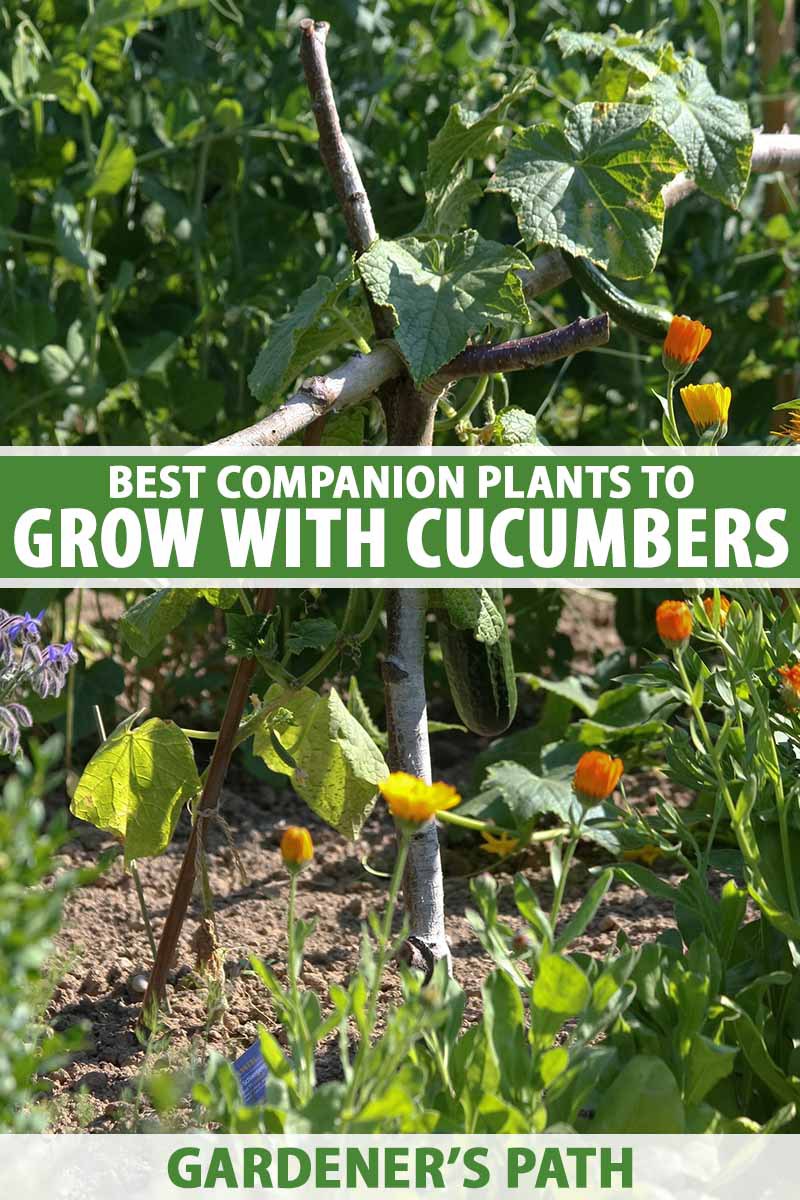Grow Better Fruit With Companion Planting
Introduction
Companion planting is a gardening practice that involves planting certain plants together for their mutual benefit. This can be done to attract beneficial insects, deter pests, improve soil quality, or simply to create a more attractive and harmonious garden.
When it comes to fruit trees, companion planting can be a great way to improve the health and productivity of your trees. By planting the right companion plants, you can help to attract pollinators, repel pests, and improve the overall health of the soil.
In this blog post, we will discuss the benefits of companion planting for fruit trees, and provide some tips on how to choose the right companion plants for your garden.
Benefits of Companion Planting for Fruit Trees
There are many benefits to companion planting for fruit trees, including:
- Attracting pollinators. Pollinators are essential for fruit production, and companion planting can help to attract them to your garden. Some good companion plants for fruit trees include marigolds, nasturtiums, and borage.
- Repelling pests. Many companion plants have natural pest-repelling properties. For example, garlic, onions, and chives can help to repel aphids, while mint can help to repel mosquitoes.
- Improving soil quality. Some companion plants, such as legumes, can help to improve the nitrogen content of the soil. This can benefit fruit trees, which require nitrogen for healthy growth.
- Creating a more attractive garden. Companion planting can also be a great way to create a more attractive and harmonious garden. By planting different types of plants together, you can create a garden that is both beautiful and productive.
Tips for Choosing Companion Plants for Fruit Trees
When choosing companion plants for fruit trees, there are a few things to keep in mind:
- Consider the needs of your fruit trees. Some fruit trees have specific needs, such as needing full sun or needing to be protected from pests. Choose companion plants that will complement the needs of your fruit trees.
- Consider the growth habits of your companion plants. Some companion plants are tall and will provide shade for your fruit trees, while others are short and will not. Choose companion plants that will not compete with your fruit trees for sunlight or water.
- Consider the aesthetic appeal of your companion plants. You want to choose companion plants that you will enjoy looking at. Choose plants that have different colors, textures, and heights to create a visually appealing garden.
Some Common Companion Plants for Fruit Trees
Here are some common companion plants for fruit trees:
- Marigolds: Marigolds are a great companion plant for fruit trees because they help to attract pollinators and repel pests.
- Nasturtiums: Nasturtiums are another good companion plant for fruit trees. They help to attract pollinators and repel pests, and they also add a splash of color to the garden.
- Borage: Borage is a flowering plant that is known for its nectar. It attracts beneficial insects, such as bees and butterflies, which help to pollinate fruit trees.
- Garlic: Garlic is a pungent herb that helps to repel pests, such as aphids and spider mites. It also helps to improve the soil quality around fruit trees.
- Onions: Onions are another pungent herb that helps to repel pests. They also help to improve the soil quality around fruit trees.
- Chives: Chives are a mild-flavored herb that helps to repel pests. They also help to improve the soil quality around fruit trees.
- Legumes: Legumes, such as peas and beans, are nitrogen-fixing plants. They help to improve the nitrogen content of the soil, which benefits fruit trees.
Conclusion
Companion planting is a great way to improve the health and productivity of your fruit trees. By planting the right companion plants, you can help to attract pollinators, repel pests, and improve the overall health of the soil.
If you are new to companion planting, start by planting a few of the companion plants listed above. You will be surprised at how much of a difference they can make in your fruit harvest.
Fruit trees are a wonderful addition to any garden, but they can be susceptible to pests and diseases. Companion planting is a great way to help protect your fruit trees and improve their overall health. Companion plants are those that benefit each other when planted together. They can attract pollinators, repel pests, improve soil health, and suppress weeds.
There are many different companion plants that can be beneficial for fruit trees. Some of the most popular include:
- Herbs: Herbs such as chamomile, lavender, and mint can attract pollinators and repel pests. They can also improve soil drainage and suppress weeds.
- Flowers: Flowers such as marigolds, nasturtiums, and sunflowers can attract pollinators and repel pests. They can also add beauty and interest to your garden.
- Vegetables: Vegetables such as beans, peas, and potatoes can help to fix nitrogen in the soil, which can benefit your fruit trees. They can also help to suppress weeds.
If you're looking for more information about companion planting for fruit trees, I recommend visiting Gardenia Inspiration. This website has a wealth of information on the topic, including a list of the best companion plants for specific fruit trees.
FAQ of companion plants for fruit trees
Frequently Asked Questions about Companion Plants for Fruit Trees
What are companion plants?
Companion plants are plants that are grown in close proximity to each other to benefit each other. They can provide a variety of benefits, such as attracting pollinators, repelling pests, improving soil health, and suppressing weeds.
What are the benefits of companion planting with fruit trees?
There are many benefits to companion planting with fruit trees. Some of the most common benefits include:
- Increased pollination: Companion plants can attract pollinators, such as bees and butterflies, which help to pollinate fruit trees. This can lead to a larger harvest of fruit.
- Reduced pest pressure: Some companion plants can repel pests, such as aphids, spider mites, and whiteflies. This can help to protect fruit trees from damage and disease.
- Improved soil health: Companion plants can help to improve soil health by adding nutrients, breaking down organic matter, and suppressing weeds. This can create a healthier environment for fruit trees to grow in.
What are some good companion plants for fruit trees?
There are many different companion plants that can be grown with fruit trees. Some of the most popular choices include:
- Herbs: Herbs such as rosemary, lavender, and sage can help to repel pests and attract pollinators.
- Flowers: Flowers such as marigolds, nasturtiums, and sunflowers can also help to attract pollinators and repel pests.
- Vegetables: Vegetables such as tomatoes, carrots, and beans can help to improve soil health and suppress weeds.
- Cover crops: Cover crops such as clover and alfalfa can help to improve soil health and suppress weeds.
How do I choose companion plants for my fruit trees?
When choosing companion plants for your fruit trees, it is important to consider the specific needs of your trees. Some factors to consider include the size of your trees, the type of fruit they produce, and the climate in your area.
It is also important to do some research to see which companion plants are compatible with your specific fruit trees. Some companion plants can actually be harmful to fruit trees, so it is important to be careful.
Where should I plant companion plants with fruit trees?
Companion plants should be planted in close proximity to fruit trees, but not too close. The exact distance will vary depending on the size of your trees and the type of companion plants you are planting.
It is important to plant companion plants in a location that receives full sun. Most companion plants also prefer well-drained soil.
Image of companion plants for fruit trees
Marigolds: Marigolds are a great companion plant for fruit trees because they help to repel pests, such as aphids, whiteflies, and spider mites. They also help to improve the soil quality by attracting beneficial insects.

Nasturtiums: Nasturtiums are another great companion plant for fruit trees. They help to deter pests, such as Japanese beetles, and they also attract pollinators, such as bees and butterflies.
Chives: Chives are a good companion plant for fruit trees because they help to improve the soil quality by adding nitrogen. They also help to repel pests, such as carrot flies and cabbage loopers.

Garlic: Garlic is another good companion plant for fruit trees. It helps to improve the soil quality by adding sulfur and it also helps to repel pests, such as Japanese beetles and root-knot nematodes.

Cucumbers: Cucumbers are a good companion plant for fruit trees because they help to attract pollinators, such as bees and butterflies. They also help to suppress weeds.

Post a Comment for "Grow Better Fruit With Companion Planting"